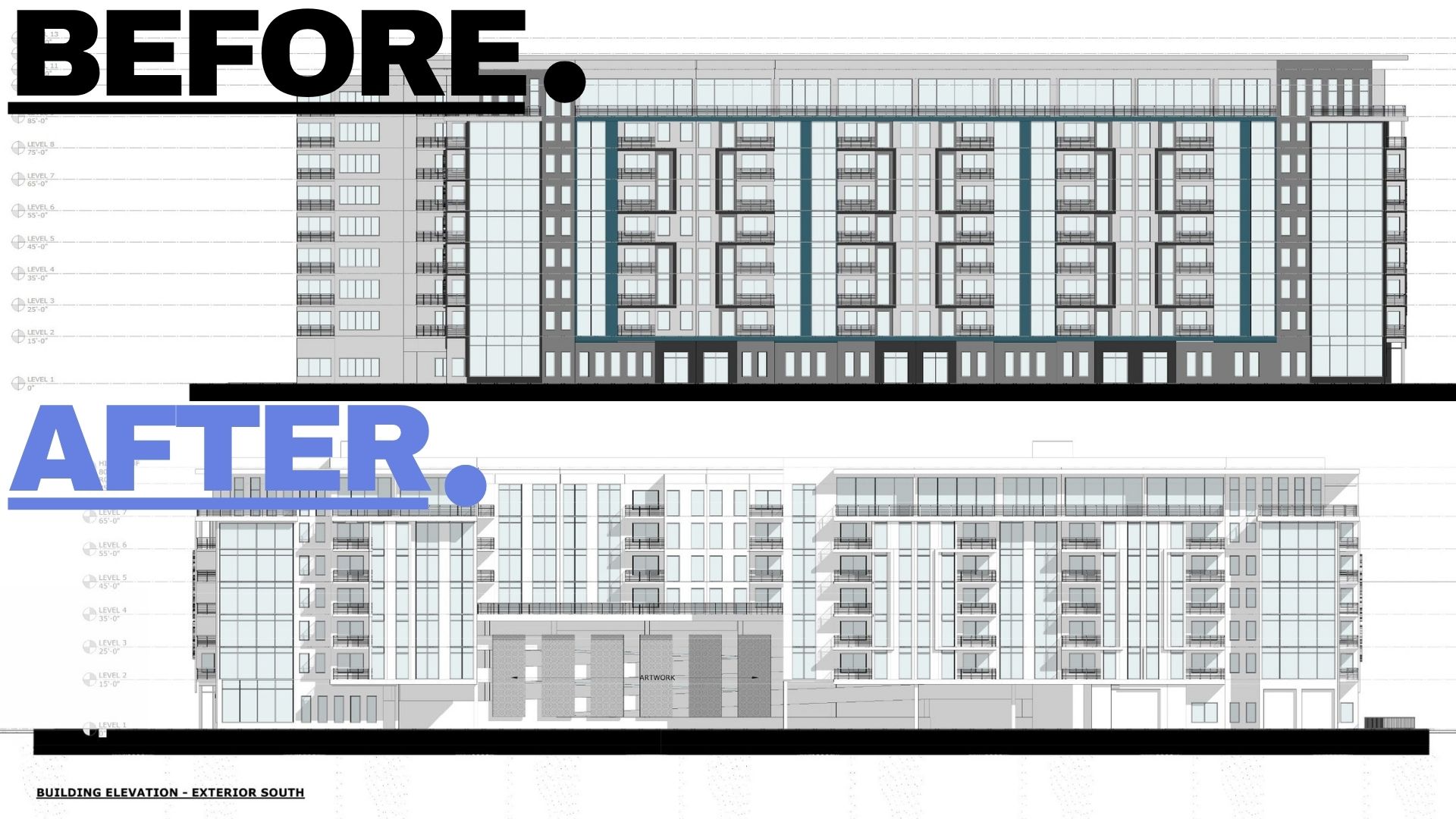
Channelside Partners, affiliated with Tampa Bay-based developer Abacus Group, is returning to the drawing board for an apartment project in Ybor Heights. Tentatively called Ybor Heights Apartments, the development was first submitted in September of last year but was unexpectedly withdrawn. The original proposal called for a nine-story building at 3917 N Nebraska Ave, utilizing the Live Local Act. Now, revised plans take a more scaled-down approach, removing the Live Local Act in favor of another pro-development statute recently passed by the Florida Legislature. If permitting and approvals proceed smoothly, the project would be among the first large-scale apartment developments in the neighborhood.
Submitted last month, revised plans now call for a seven-story apartment building, two stories shorter than the previous proposal. The project will include 257 units, 27 of which will be designated as affordable, solely in studio, one-, and two-bedroom layouts. Residents will have access to 259 parking spaces, falling short of the 392 spaces required by city code. In addition, the development will provide 26 bicycle parking spaces.
These details differ significantly from the original plans, which featured 296 units and 419 parking spaces. However, the commercial component has remained largely unchanged. The original proposal included 2,729 SF of commercial space with outdoor seating, while the revised plans call for roughly the same: 2,649 SF of commercial space accompanied by large sidewalks and outdoor seating.
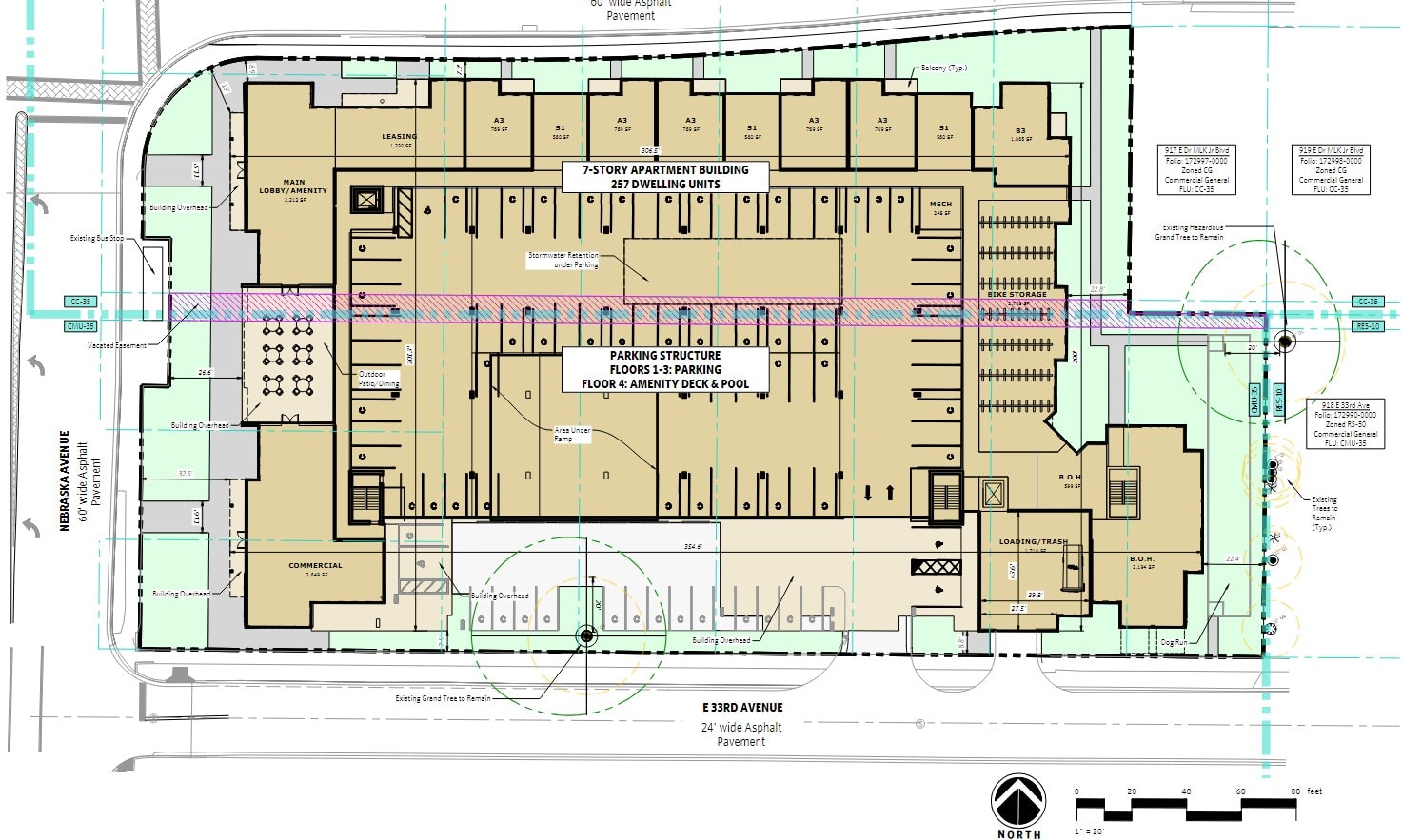
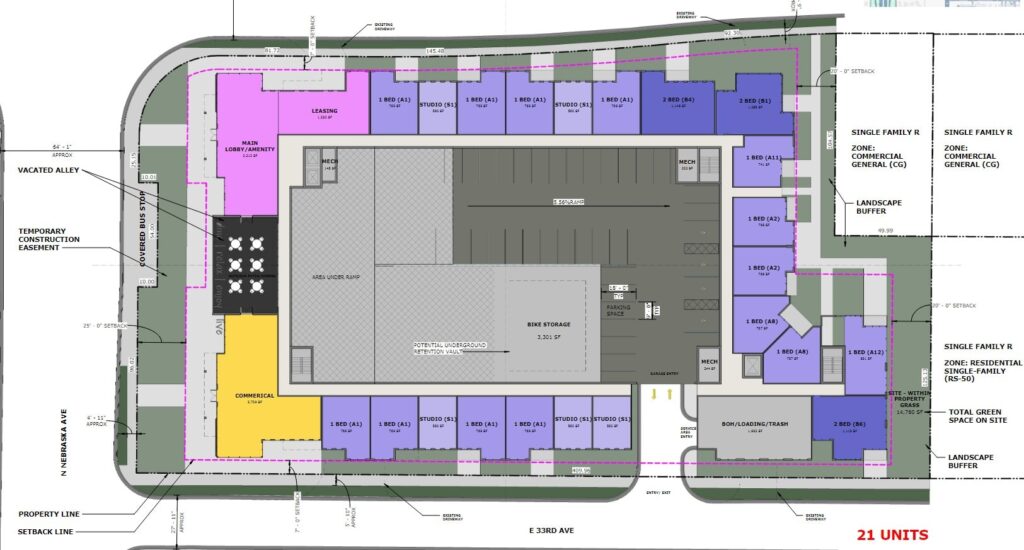
One of the more notable revisions involves the project’s facade, with significant changes to both active use and exterior treatment. Along E 33rd Ave, the originally planned walk-up units have been replaced with parking and mechanical spaces. Architect Baker Barrios has also reworked the facade design, shifting from a mix of dark teal, stone gray, and dark gray tones with large blue windows to a simplified all-white exterior.
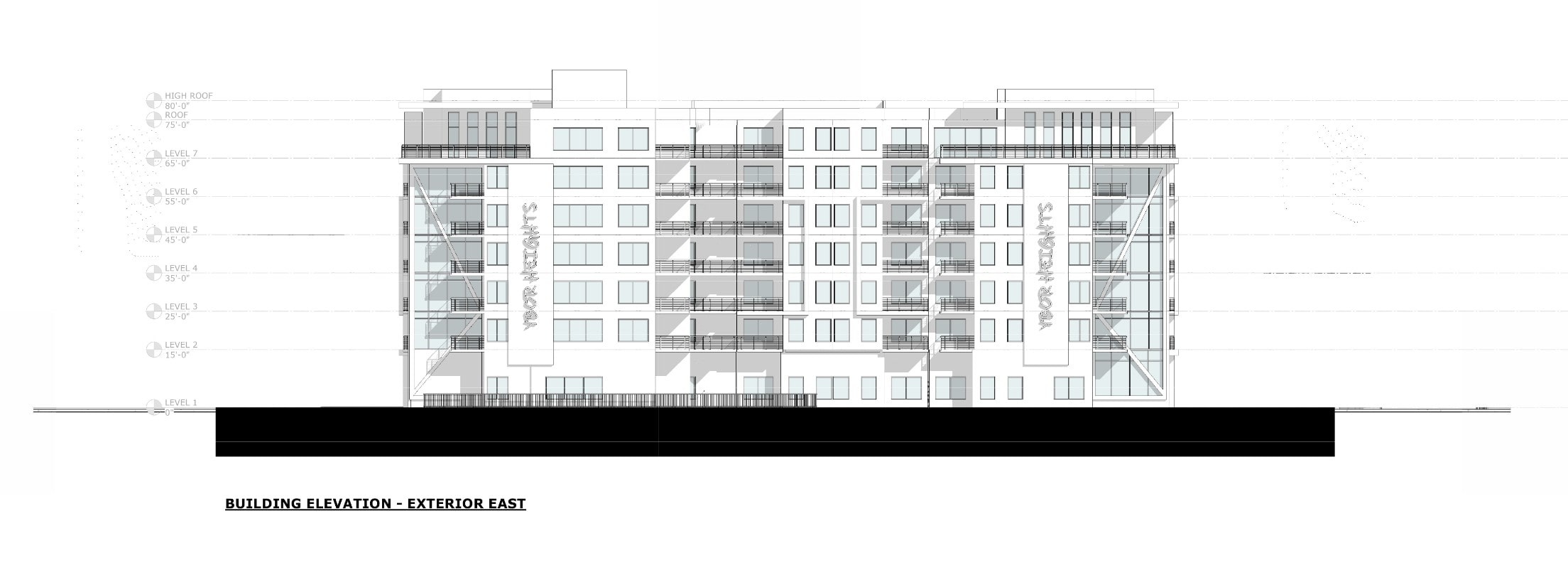
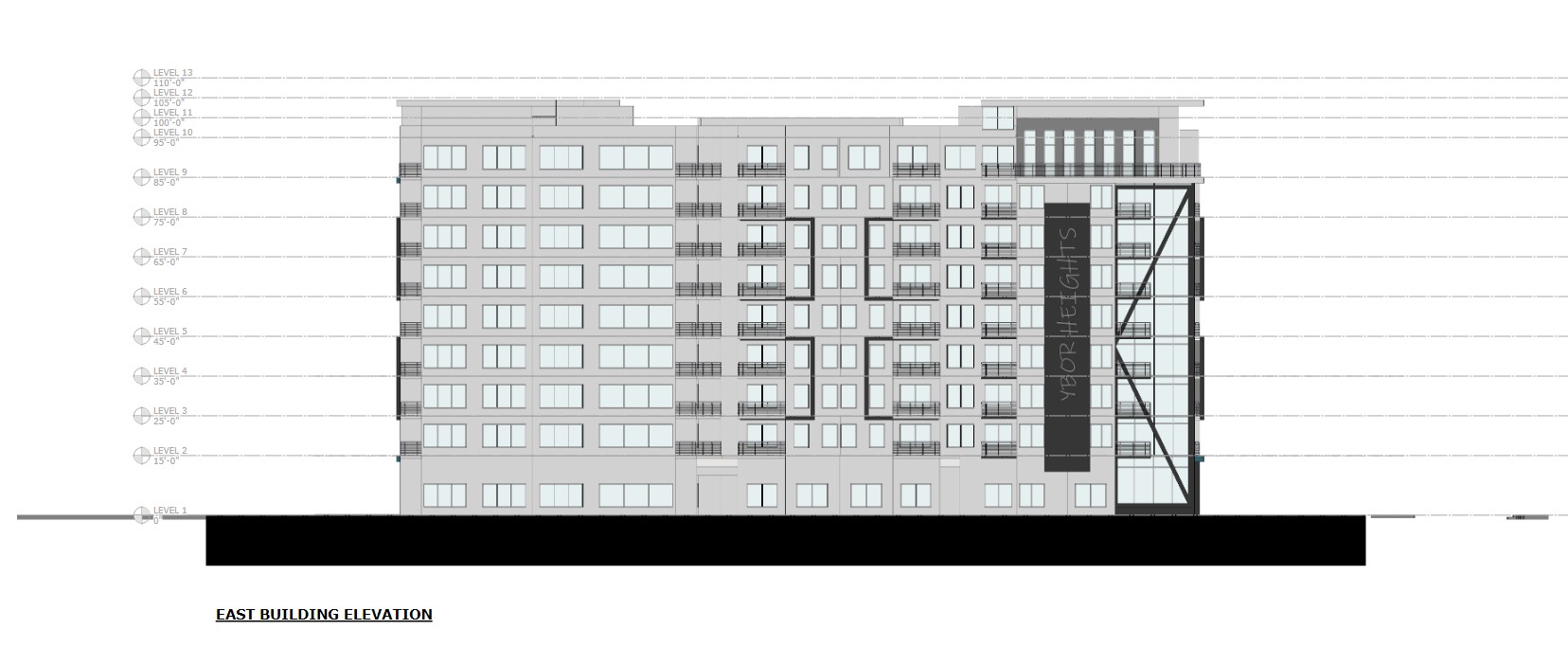
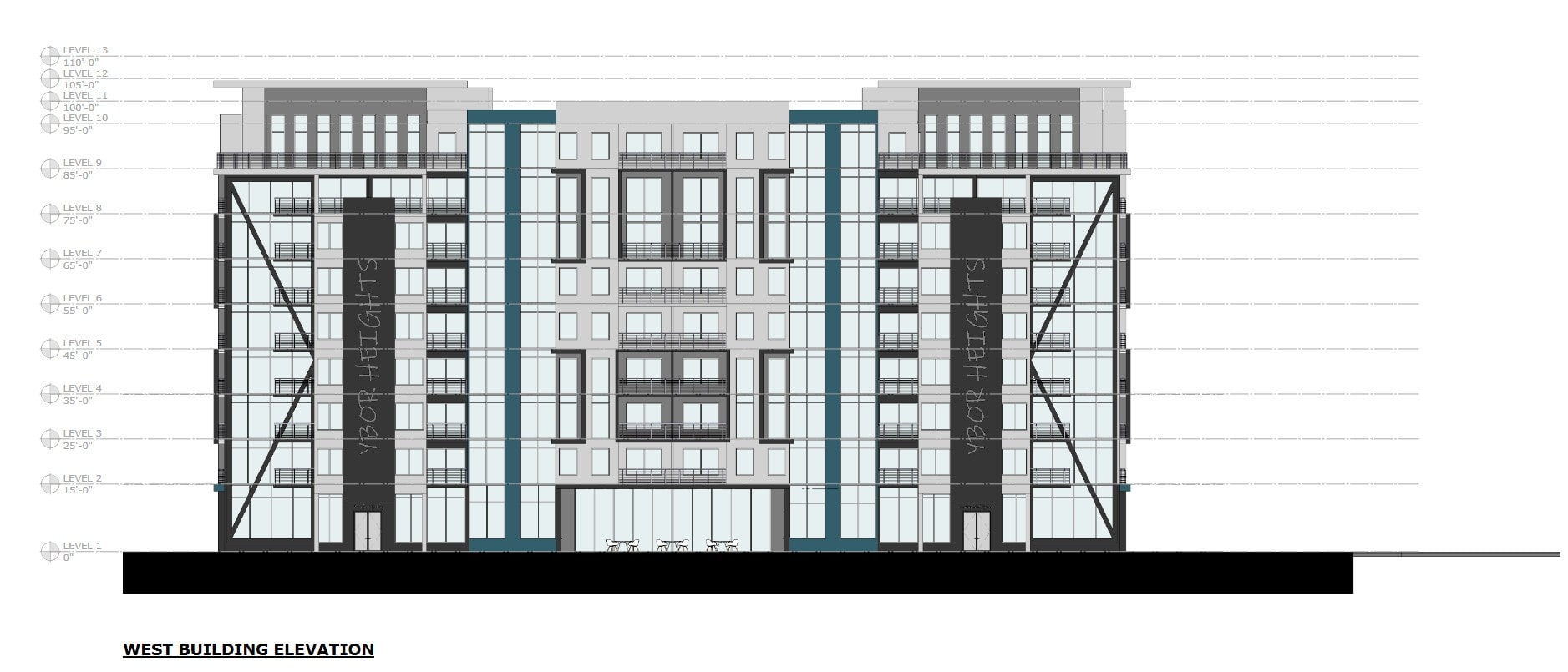
The altered project plans to cut the Live Local Act component, which would have required at least 40% of units to be designated as affordable (up to 120% of the local AMI). Instead, the developers are now proposing the project under Florida Statutes § 166.04151, also known as the Affordable Housing Statute. This statute only requires 10% of units to be affordable, in exchange for incentives such as allowing housing atop commercial or industrial land. By opting for this approach, the developer is giving up certain benefits available under the Live Local Act, including tax exemptions and access to dedicated funding.
The site for the new project was purchased for nearly $2.4 million in 2023, previously occupied by a Walgreens that closed as part of the company’s nationwide downsizing. Any redevelopment will require demolition of the existing structure and new building permits, none of which have been filed as of October 2, 2025. This proposal isn’t unexpected, however; as the neighborhood piques developer interest, just a few blocks away, Robles Park is being cleared to make way for a major mixed-use redevelopment that promises new housing, retail, and community amenities.